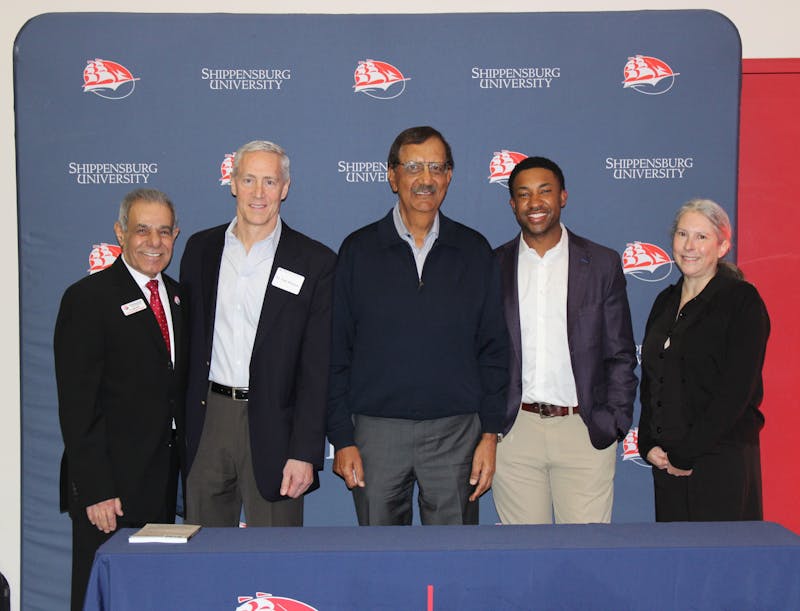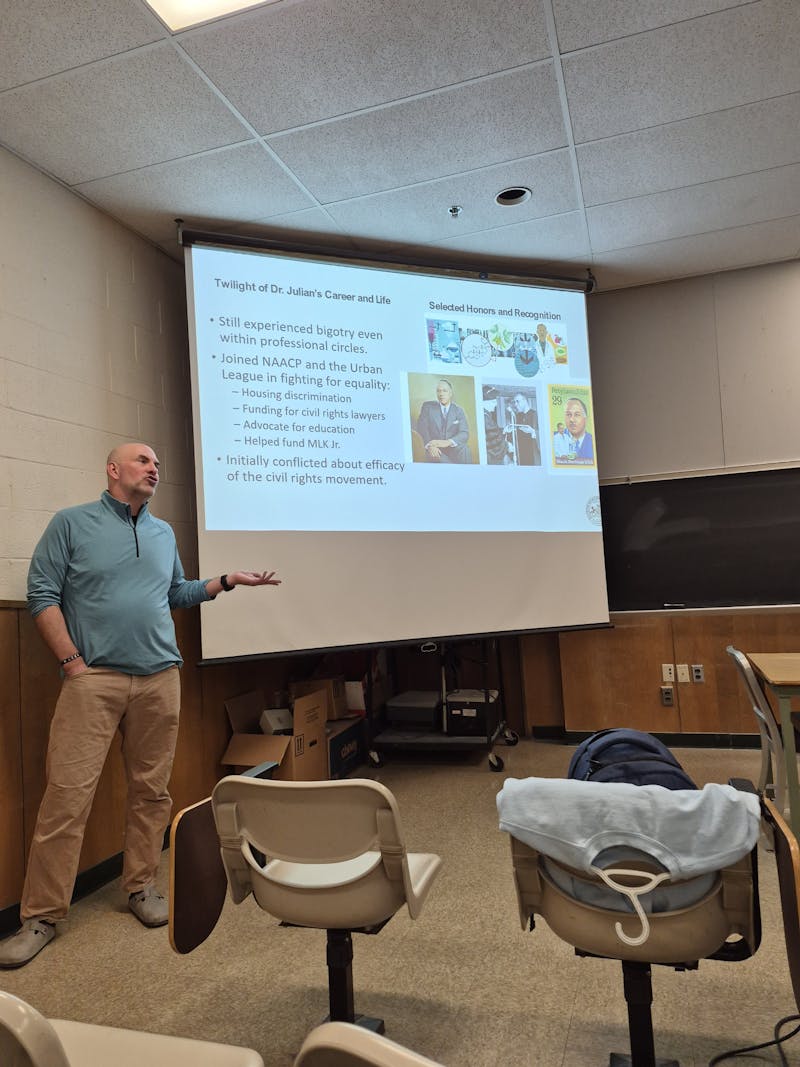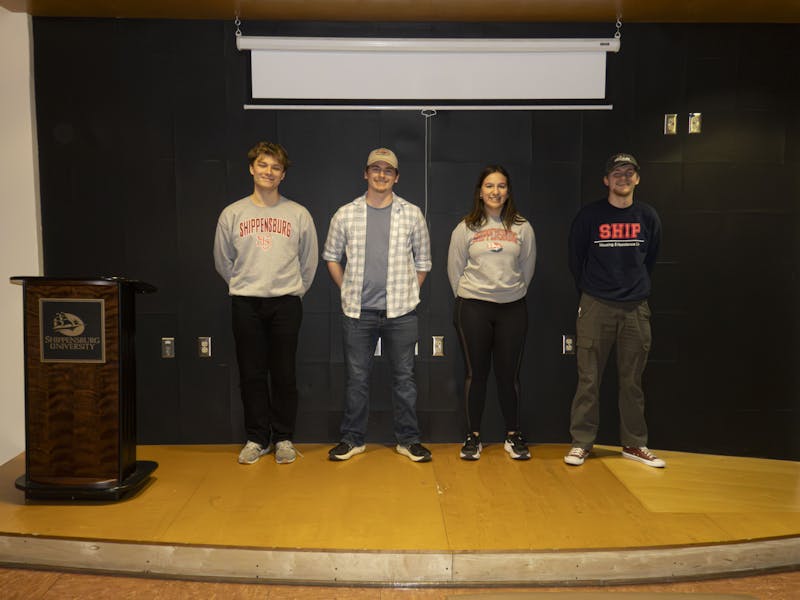ShipVotes, a nonpartisan coalition at Shippensburg University, is educating students about the importance of their vote and how to register to vote for upcoming elections.
ShipVotes is made up of students, faculty and staff members who seek to “defeat this idea that young voters are apathetic and that young voters don't care,” said Eyoel Delessa, a faculty lead, an adjunct professor and reference, outreach and instruction librarian.
This is a stereotype that Delessa has found to be untrue. Delessa said most students said voting was important when surveyed in over 30 University 101 classes.
Delessa said the voter registration process can be overwhelming for first-time voters which is why some young voters may put off the process. ShipVotes works to walk these students through the process. The coalition also makes sure students have the necessary information to make an informed decision on how or if they want to vote.
ShipVotes has been rallying for Raiders to vote since 2008 when SU professor Katy Clay founded the group. Clay, who is now retired, stepped down last year and Delessa and David Monaghan, a sociology professor, replaced her as faculty leads. In their positions Delessa and Monaghan support the students and are there to be an ear for students. Delessa said they let students take initiative in what they want to do.
The coalition focuses on campus outreach through visiting University 101 classes, setting up voter registration tables in the Ceddia Union Building (CUB) and having bi-weekly meetings Fridays at 2:30 p.m. Student leaders also post events and information on the coalition’s social media platforms, according to Delessa. ShipVotes is connected with national organizations that work with campus voters like the Campus Election Engagement Project (CEEP) and the Campus Voter Project. The group has two fellows from CEEP that are working with them, Ian Coyne and Nina Mitchell, Delessa said.
The COVID-19 coronavirus pandemic has impacted ShipVotes like many other on-campus groups and organizations, forcing them to find alternative ways to operate. With the November presidential election quickly coming, ShipVotes worked throughout the summer to create a virtual campaign, Delessa said.
According to Delessa, One of the ways ShipVotes has helped educate students on voter registration is through a virtual voter registration workshop for the athletic department.
“Student athletes have a great network and the ShipVotes program for the athletic department was successful and great,” Delessa said.
For everyday outreach, the coalition would typically have a table in the CUB at which volunteers could help students fill out a voter registration form on the spot. With social distancing guidelines in mind, their tabling outreach has changed this year. The ShipVotes tables will have a QR code for students to scan that takes them to the ShipVotes website to fill out their voter registration.
Officials launched the ShipVotes website in August, and offers information related to the coalition and its cause. For more information, visit ship.edu/life/resources/shipvotes/
The ShipVotes Instagram page, @shipvotes, has become an important asset this semester because of the coronavirus pandemic. ShipVotes can campaign and put out information for students through its social media page, Delessa said.
Another challenge brought on by the pandemic is the shuttle service to the polls. ShipVotes usually offers shuttles for students to get local polls on election days. However, the typical vans and cars are not sufficient for social distancing, according to Delessa. The coalition is in the process of finding alternative transportation for Election Day and is working extremely hard to provide the resource Delessa said.
ShipVotes works to break stereotypes about student voters and make vital information about voting accessible to SU students. Even when it is not a presidential election year, the coalition sets up tables and utilizes social media to keep students informed. For the Nov. 3 election, the Pennsylvania voter registration deadline is Oct. 19.




The Slate welcomes thoughtful discussion on all of our stories, but please keep comments civil and on-topic. Read our full guidelines here.